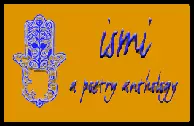Majid Naficy
A Song For Peace
written after seven years of the Iran-Iraq war
Oh, war!
How long do you knock
At the gates of my city?
Let me become a shouting voice
To silence the echo
Of your heavy fists.
A voice louder
Than the moaning of death
In the shameless mouth of earth.I am not a man of epics
Who blows your lying leaders' horn.
For years my Rostam has died
In his well of loneliness.
I am a man of lyrics,
A bard for peace.
Let me take again the harp
That you have stolen from these people
And sing about the painful wounds.
Let me compose a song for peace
Beyond your phony epics.
"For years my Rostam has died"
A hero in Iranian mythology comparable to Hercules, thrown by his half-brother Shaghad into a well, where he dies.
To The Children of Prison and Exile
After the silence of firing squads
Still it burns in our hearts
And we carry their corpses
On our broken backs.
I want to turn this death into life.How many companions,
Who in these years of defeat and execution
Create life of an embryo?
I am talking about the children of prison and exile:
Cheshmeh, Roza, and Sulmaz.I want to turn this death into a poem,
That like a jug of water
Becomes filled with the freshness of Cheshmeh,
And like a red rose
Blooms from the lips of Roza,
And like the word "sulmaz"
Becomes evergreen.
I will sift, grind, and soften this death,
And have the children of prison and exile
Make new bricks.
I am calling you,
O newborns of years of pain,
The crocodiles in your painting
Have no teeth.
Because the names of their friends
Never crossed their lips.
I want to turn this death into a poem,
That you can throw down like a heavy slipper
On the heads of the cruel army of ants
When they carry the corpse of a butterfly,
And prematurely occupy your minds
With the meaning of death.I want to turn this death into life.
"Cheshmeh, Roza, and Sulmaz"
The literal meanings of these names are "spring," "rose," and "everlasting" respectively.
First Lesson in Freedom
I want
Neither the old titles
Nor the new ones.
Call me
By the same familiar name
I am a man
A man of yesterday and tomorrow.In my eyes, the stars fade away
And in my hands, the setting sun.
In my smile, a child is born
And from my heart, blood bubbles up.I am my own god, and yet
I see myself as a fox
With a tail turbaned on my head.I am the goddess of creation, and yet
I see myself as a cog
In the frowning wheel of production.I get up, and from the quiet porch
Look at the dead trees of winter
I wrap myself in the sweater
That Marjan knitted in prison,
To give history and nature
Their first lesson in freedom.
Ah, Los Angeles!
Ah, Los Angeles!
I accept you as my city,
And after ten years
I am at peace with you.
Waiting without fear
I lean back against the bus post.
And I become lost
In the sounds of your late night.A man gets off the Blue Bus 1
And crosses to this side
To take the RTD 4.
Perhaps he too is coming back
From his nights on campus.
On the way he has sobbed
Into a blank letter.
And he has heard the voice of a woman
With a tropical accent.
On the RTD 4 it rains.
A woman is taking her umbrella
And a man ceaselessly flushes a toilet.I told Carlos yesterday,
"Your clanging cart
Wakes me up in the morning."
He collects cans
And wants to go back to Cuba.
From the Promenade
Comes the sound of my homeless man.
He sings badly
As he plays his guitar.
Where in the world can I hear
The black moaning of the trumpet
Alongside the Chinese chimes?
And see this warm olive skin
Through blue eyes?
The heedless pigeons
Have perched on the empty benches.
They stare at the dinosaur
Who sprays old water on our kids.
Marziyeh sings from afar.
I return, homesick
And I put my feet
On your back.
Ah, Los Angeles!
I feel your blood.
You taught me to get up
And look with love
At my beautiful legs
And along with the marathon
Run on your broad shoulders.Once I wanted to commit suicide.
I coiled up under my blanket
And was a recluse for two nights.
Then, I turned on the radio,
And I heard the poems of a Russian poet,
Who in a death camp,
Was denied paper
But his wife learned them by heart.
Will Azâd read my poems?
On the days I take him to school,
He sees the bus number from far off.
And makes things easier for me.
At night he stays under the shower
And lets drops of water
Spray on his young skin.
Sometimes we go to the beach.
He bikes and I skate.
He buys a Pepsi from a machine
And gives me one sip.Yesterday we went to Romteen's house.
His father is a Parsee from India.
He wore sadra and kusti
While he was painting the house.
On that little stool
He looked like a Zoroastrian
Rowing from Hormuz to Sanjan.An, Los Angeles!
Let me bend down and put my ear
To your warm skin.
Perhaps in you
I will find my own Sanjan.
No, it's not a ship scraping
Against the rocky shore;
It's the rumbling of Blue Bus 8.
I know.
I will get off ad Idaho Street
And will pass the shopping carts
Let by the homeless.
I will climb the wooden staircase
And will open the door.
I will start the answering machine
And in the dark
I will wait like a fisherman.

